Travel can be an enriching experience for seniors, offering opportunities to explore new places and cultures. To ensure a safe journey, having the right travel products is essential. This guide covers 13 crucial safety items specifically designed for senior travelers, ensuring peace of mind and a safer travel experience.
1. Medical ID (bracelet, card, or phone Medical ID)
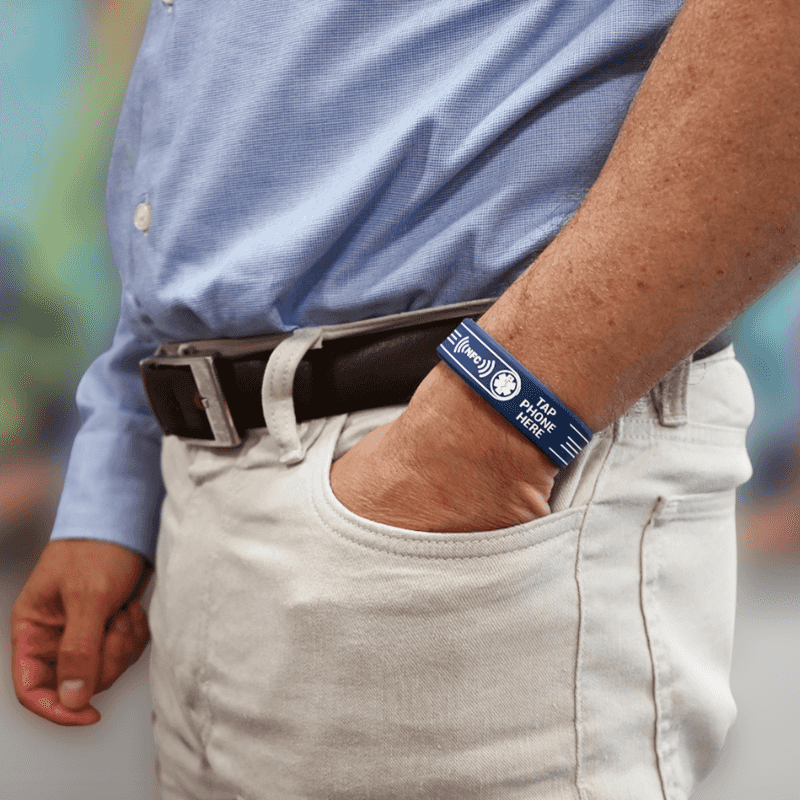
A visible medical ID bracelet can speak for you when you can’t, alerting others to any critical health conditions. Whether it’s a bracelet, card, or phone ID, having this information on hand can expedite medical care when every second counts. Carry copies of prescriptions and insurance documents in your travel kit and phone. Add an ICE (In Case of Emergency) contact in your phone and on a wallet card.
2. 7-Day Pill Organizer (ideally with alarms) + original meds in carry-on
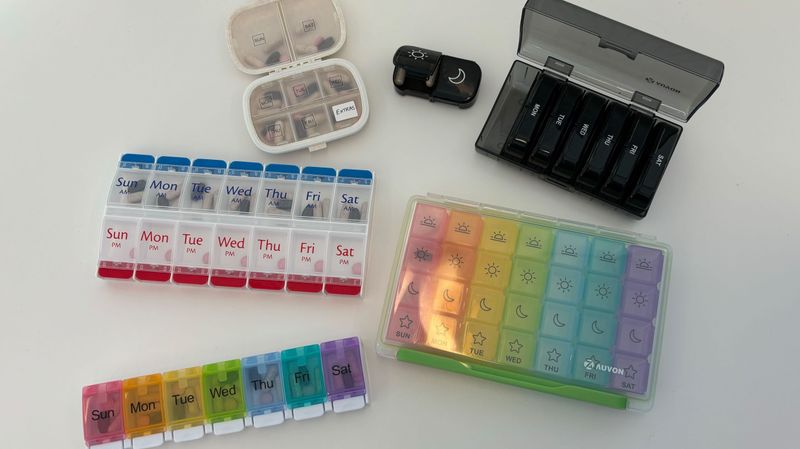
Managing medications while traveling can be a complex task, especially across time zones. A 7-day pill organizer with alarms ensures that doses are never missed, providing clear reminders. Always carry your medications in your carry-on to avoid loss, and pack extras for a few days to cover delays. This small step is a significant safeguard for maintaining health on the go.
3. Personal Medical Alert (PERS) with Fall Detection
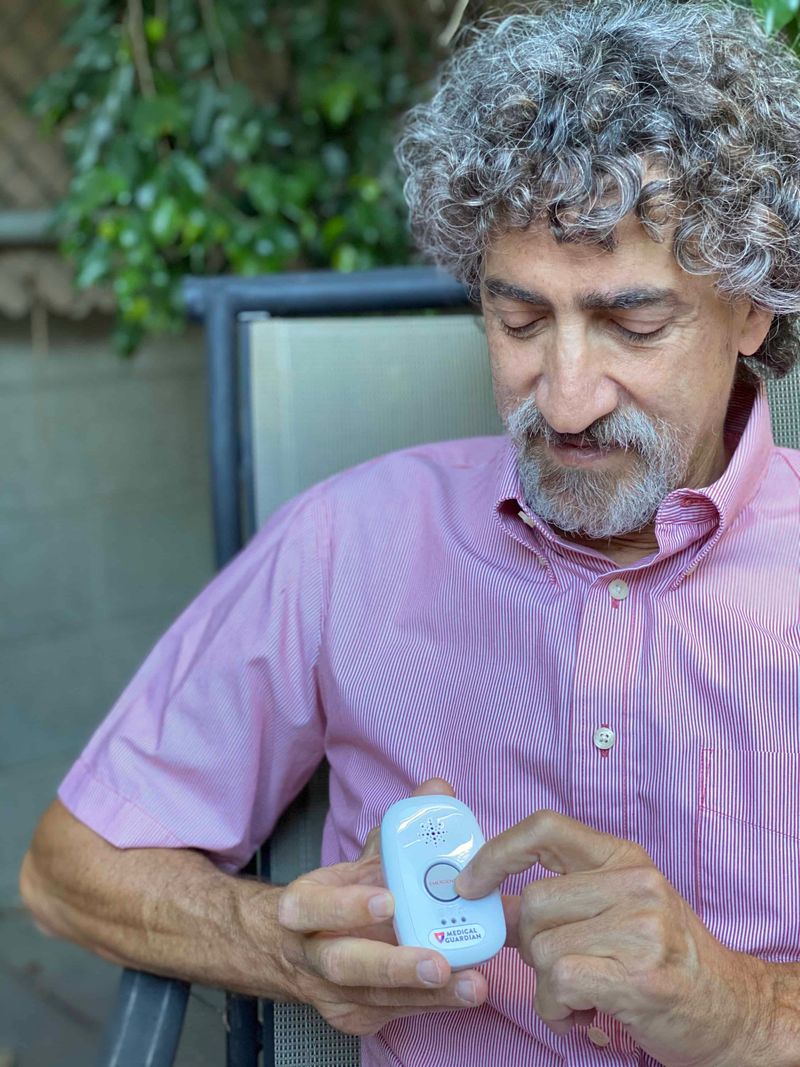
A personal medical alert system with fall detection is like having a guardian angel. These wearable devices can detect a fall automatically and summon help instantly. This feature is particularly reassuring for seniors traveling independently. Choose models that work internationally to ensure constant connectivity, no matter where the journey leads.
4. Graduated Compression Socks for long travel days
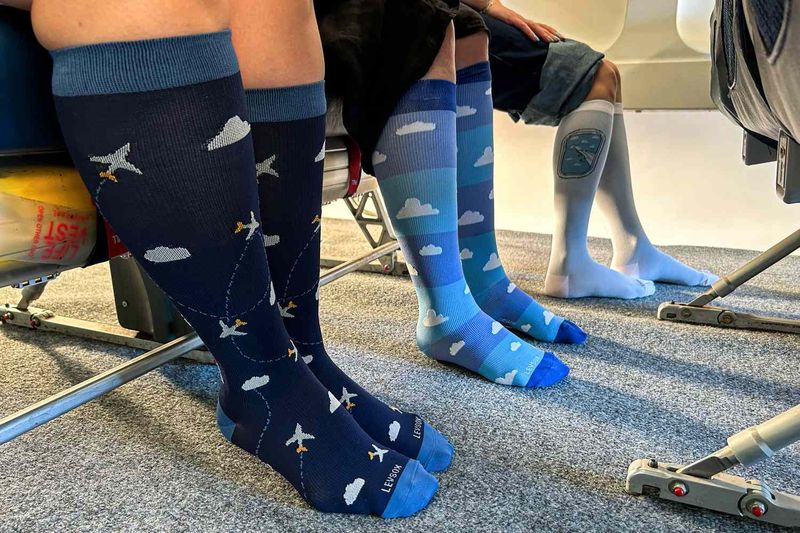
Long travel days can increase the risk of deep vein thrombosis, but graduated compression socks offer a simple solution. These socks improve circulation and reduce the risk of blood clots during prolonged periods of sitting. They are especially valuable for flights over four to five hours. Pair them with walking breaks and hydration for optimal health.
5. Luggage/Personal GPS Tracker (e.g., AirTag/Tile)
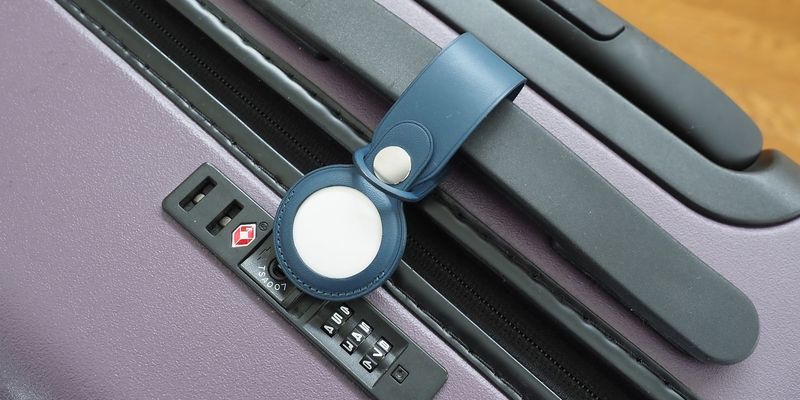
Misplaced luggage can turn a dream trip into a nightmare, but a GPS tracker attached to your bags offers a proactive solution. These small devices, compatible with checked luggage, provide real-time location updates. Airlines increasingly allow tracker location sharing, ensuring swift reunions with delayed luggage. Place your tracker near the outer pocket for a clear signal.
6. Anti-Theft Crossbody Bag (locking zippers, cut-resistant strap)

An anti-theft crossbody bag is an essential defense against pickpockets, especially in crowded places. Designed with locking zippers and cut-resistant straps, these bags offer both style and security. Worn in front, they provide easy access while keeping valuables safe. It’s wise to keep only day essentials in the bag and lock passports in the hotel safe.
7. Portable Carbon Monoxide (CO) Alarm
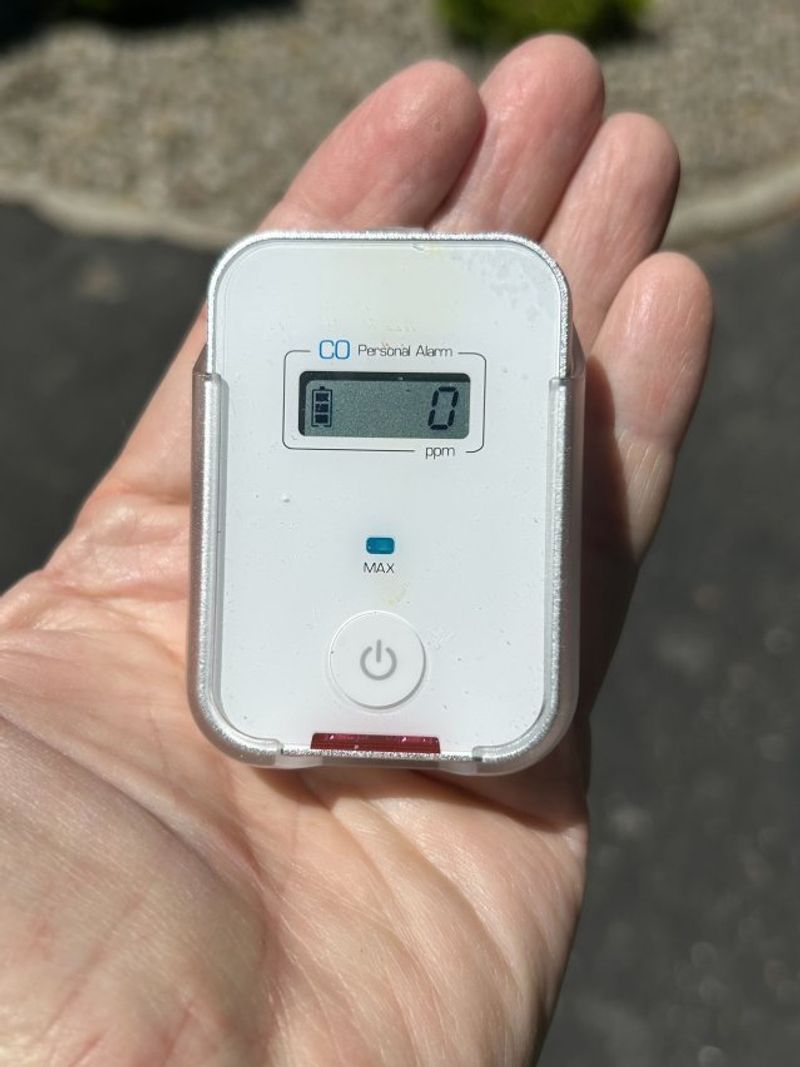
Carbon monoxide is an invisible danger that can lurk unnoticed. A portable CO alarm is a vital travel companion, especially in accommodations that may lack detectors. Compact and easy to use, these alarms provide a crucial layer of safety, alerting you to any harmful gases. Position it near sleeping areas as per the manufacturer’s instructions for optimal protection.
8. Portable Door Lock or Door-Wedge Alarm
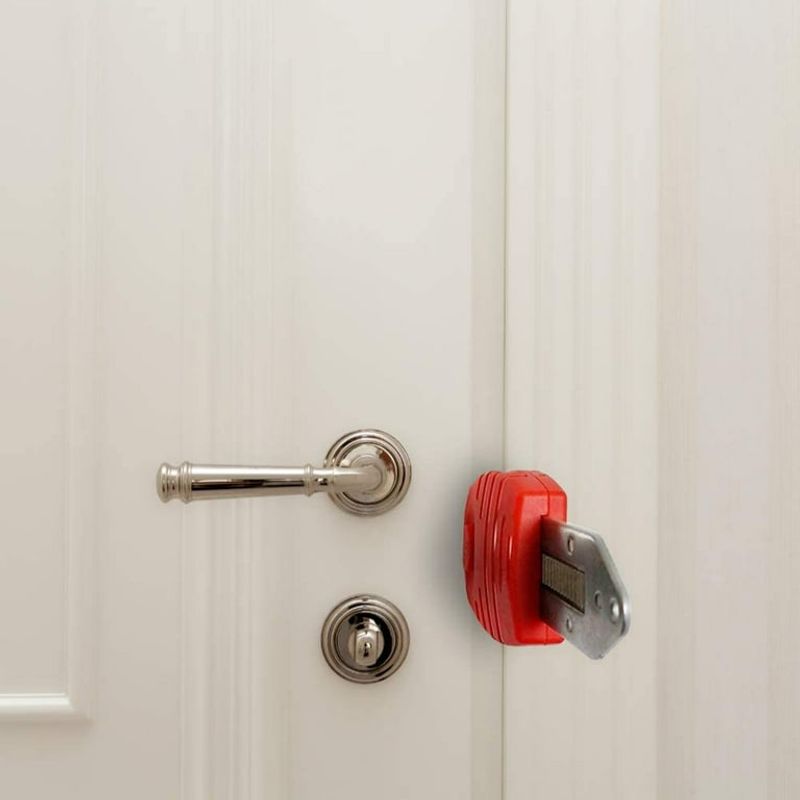
Security-conscious travelers will appreciate a portable door lock or door-wedge alarm for added peace of mind. These lightweight devices are easy to install and serve as a deterrent against unauthorized entries. Just ensure they don’t impede emergency exits and comply with property rules. Test them upon arrival for smooth nighttime operation.
9. Motion-Activated Night Light
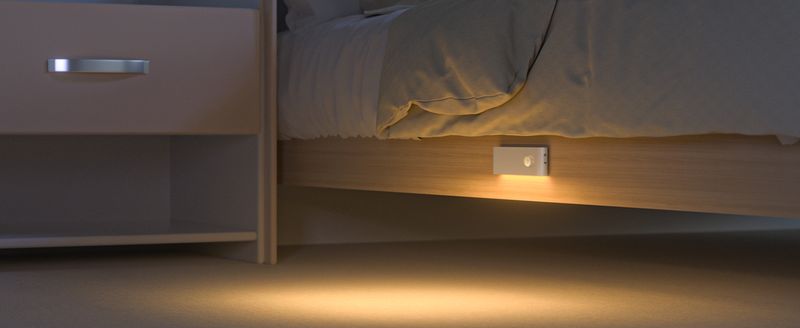
Navigating unfamiliar surroundings at night can be risky, but motion-activated night lights offer a practical solution. These lights illuminate the path from bed to bathroom, reducing fall risk. Whether battery-operated or plug-in, they are invaluable for safe nighttime navigation. Pack two: one for the bathroom and another by the bed.
10. Compact First-Aid & Travel Health Kit
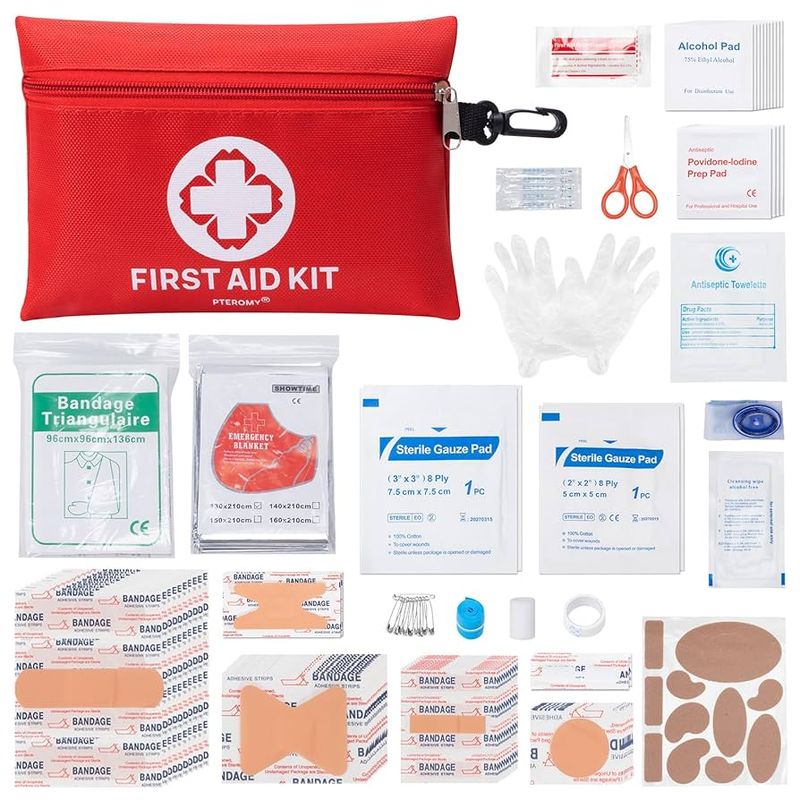
A compact first-aid kit is a travel essential, providing immediate care for minor injuries. Tailor it with bandages, antiseptics, and personal medical supplies like glucose tablets or an EpiPen. Include a thermometer, your medications, and copies of medical documents. This kit helps address health needs quickly, ensuring peace of mind on the road.
11. Power Bank (10,000 mAh+), Universal Adapter & Cables
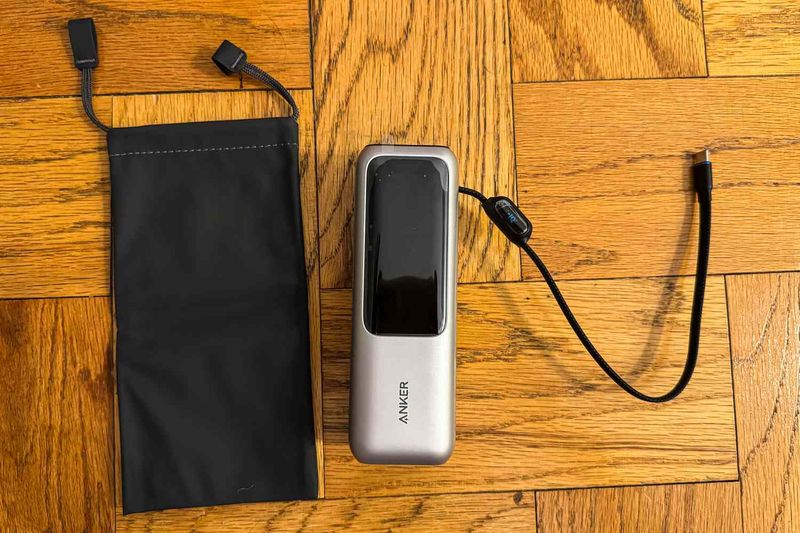
Staying connected is crucial for navigation and emergencies, making a power bank indispensable. With 10,000 mAh or more, it ensures your devices stay charged. Pair it with a universal adapter and extra cables for complete preparedness. Keep these in your day bag for easy access during outings. They are vital tools for maintaining communication and safety.
12. Hearing-Aid Essentials (charger or spare batteries, drying case)

For those with hearing aids, maintaining functionality is essential. Bring chargers or spare batteries, and consider a drying case to protect your equipment. TSA and CDC allow assistive devices through screening without removal. Keep these supplies in your carry-on for convenience and security. Consult your audiologist about telecoil/loop access at airports.
13. Supportive, Non-Slip Walking Shoes
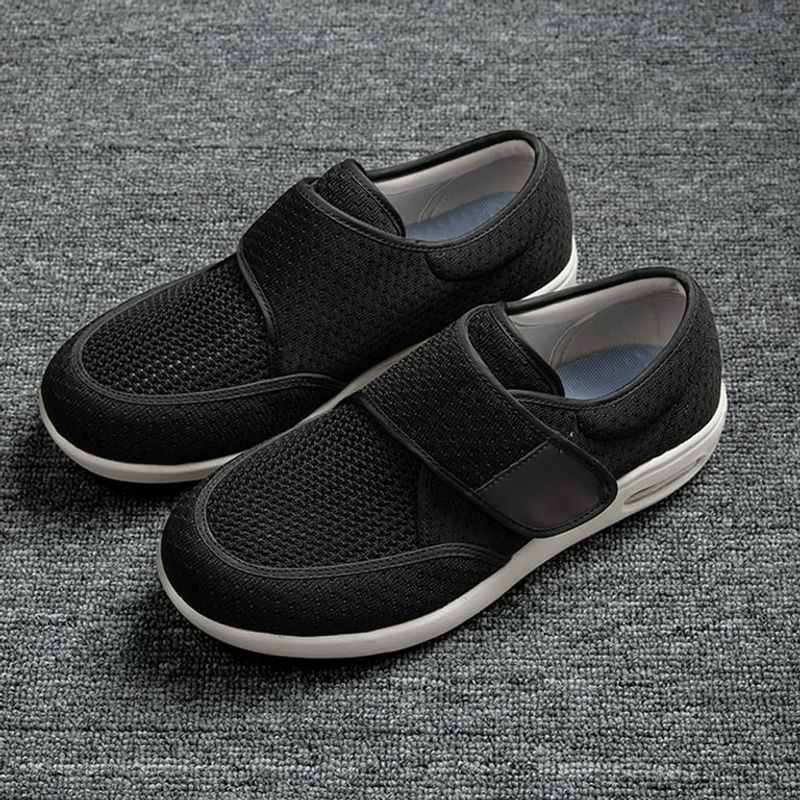
Footwear plays a crucial role in preventing falls, a leading cause of injury in seniors. Invest in supportive, non-slip walking shoes with a good fit. These shoes help reduce the risk of falls and provide comfort during exploration. Break them in before the trip and pack an extra pair of stable, low-heel shoes to ensure preparedness for any walking adventure.



